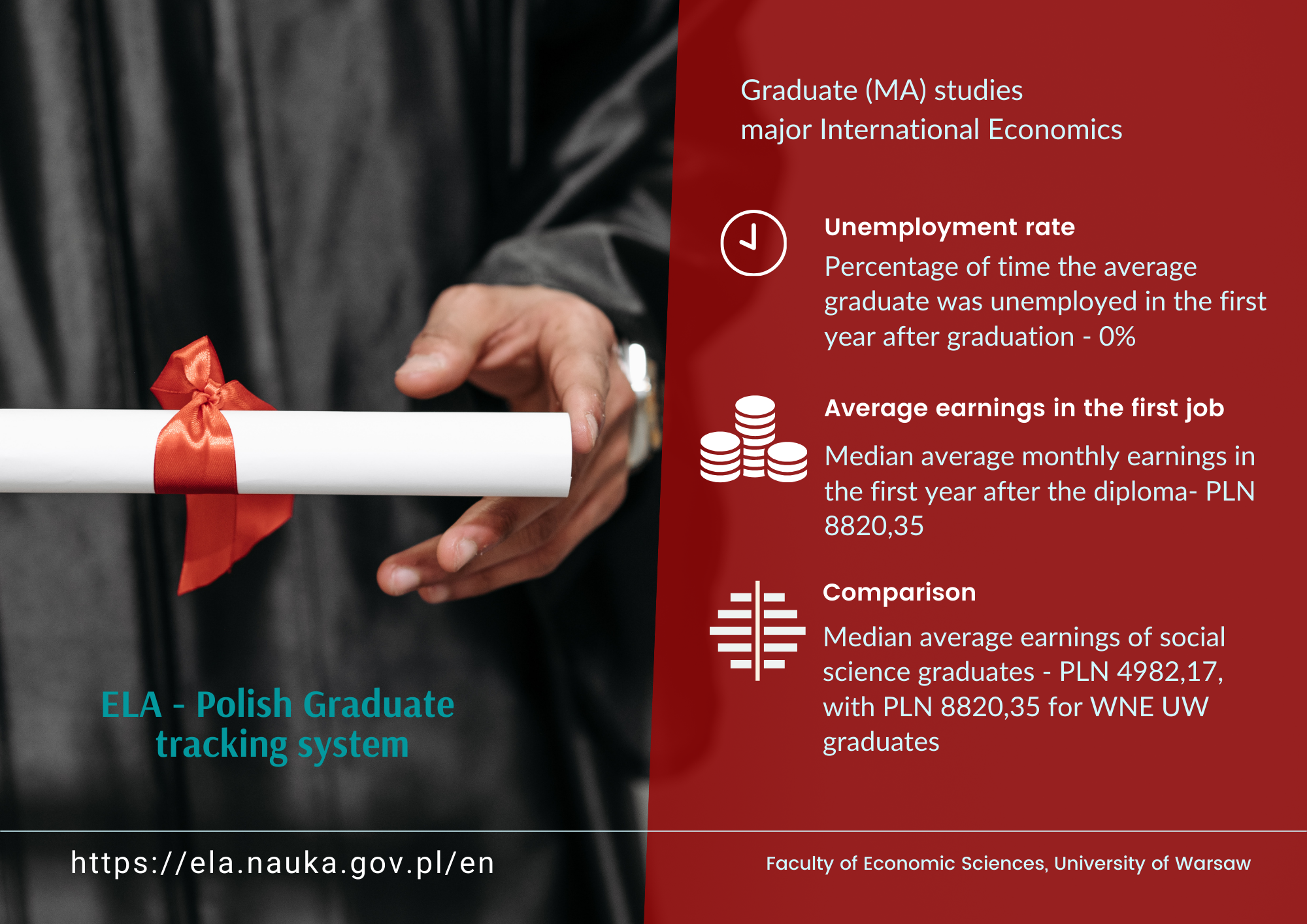Career perspectives
Graduates of International Economics have the following competencies:
- the ability to use advanced micro- and macroeconomic theory to model socio-economic processes, based on the scientific method,
- the ability to apply knowledge of mathematics, advanced statistical and econometric methods, and use STATA, Excel, Maxima, Eviews analytical software to conduct advanced quantitative analysis of economic, financial and management problems,
- an understanding of the functions of international financial and currency markets, and the valuation and application of financial instruments in the financial engineering of a multinational corporation,
- knowledge of and the ability to apply the latest versions of international trade patterns, including technology transfer, in a global knowledge economy,
- knowledge and skills to analyse current developments in the world economy, international trade trends and trade policy,
- knowledge and skills to analyse agglomeration and deglomeration processes, including foreign investment flows, on the basis of models of economic geography,
- knowledge and skills to analyse international population and labour migration processes,
- knowledge of international economic, trade and financial organisations and the rules governing the negotiation and settlement of commercial disputes,
- the ability to conduct business negotiations, communicate and present the results of analyses and business correspondence in fluent English,
- knowledge and understanding of the need to comply with professional ethical standards.

Graduates are well prepared to work in international institutions (e.g., World Bank, IMF) and international banks, as well as in private businesses operating in international markets. They receive good analytical preparation for research work in the international economy.

